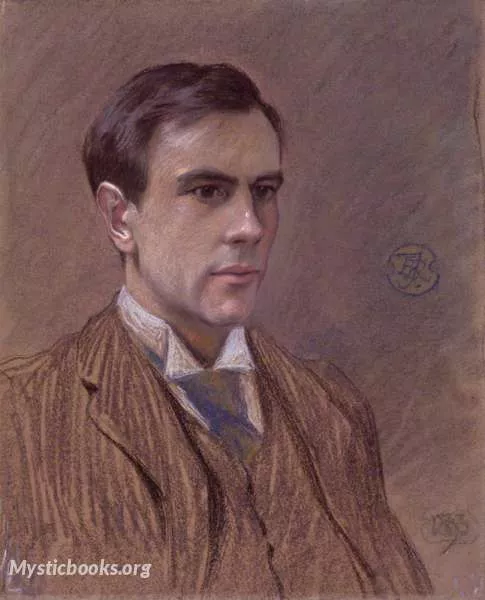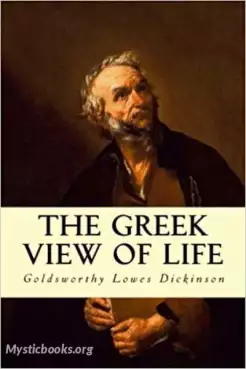
Timeline
Title
Country/Nationality
Goldsworthy Lowes Dickinson
Goldsworthy Lowes Dickinson, known as Goldie, was a British political scientist and philosopher. He lived most of his life at Cambridge, where he wrote a dissertation on Neoplatonism before becoming a fellow. He was closely associated with the Bloomsbury Group.
Dickinson was deeply distressed by Britain's involvement in the First World War. Within a fortnight of the war's breaking out he drew up the idea of a League of Nations, and his subsequent writings helped to shape public opinion towards the creation of the League.
Dickinson was born in London, the son of Lowes Cato Dickinson (1819–1908), a portrait painter, by his marriage to Margaret Ellen Williams, a daughter of William Smith Williams who was literary advisor to Smith, Elder & Company and had discovered Charlotte Brontë. When the boy was about one year old his family moved to the Spring Cottage in Hanwell, then a country village. The family also included his brother, Arthur, three years older, an older sister, May, and two younger sisters, Hester and Janet.
His education included attendance at a day school in Somerset Street, Portman Square, when he was ten or eleven. At about the age of twelve he was sent to Beomonds, a boarding school in Chertsey, and his teenage years from 14 to 19 were spent at Charterhouse School in Godalming, where his brother Arthur had preceded him. He was unhappy at Charterhouse, although he enjoyed seeing plays put on by visiting actors, and he played the violin in the school orchestra. While he was there, his family moved from Hanwell to a house behind All Souls Church in Langham Place.
In 1881 Dickinson went up to King's College, Cambridge, as an exhibitioner, where his brother, Arthur, had again preceded him. Near the end of his first year he received a telegram informing him that his mother had died from asthma. During his college years, his tutor, Oscar Browning, was a strong influence on him, and Dickinson became a close friend of his fellow King's undergraduate C. R. Ashbee. Dickinson won the chancellor's English medal in 1884 for a poem on Savonarola, and in graduating that summer he was awarded a first-class degree in the Classical Tripos.
After travelling in the Netherlands and Germany, Dickinson returned to Cambridge late that year and was elected to the Cambridge Conversazione Society, better known as the Cambridge Apostles. In a year or two he was part of the circle that included Roger Fry, J. M. E. McTaggart, and Nathaniel Wedd.
In the summer of 1885 he worked at a co-operative farm, Craig Farm at Tilford near Farnham in Surrey. The farm had been started by Harold Cox as an experiment in simple living. Dickinson was proud of his hoeing, digging, and ploughing. That autumn, and continuing to the spring of 1886, Dickinson joined the University Extension Scheme to give public lectures that covered Carlyle, Emerson, Browning, and Tennyson. He toured the country, living for a term at Mansfield and for a second term at Chester and Southport. He spent a brief time in Wales afterwards.
With financial help from his father, Dickinson then began to study for a medical degree, beginning in October 1886 at Cambridge. Although he became dissatisfied with his new subject and nearly decided to drop out, he persevered and passed his M.B. examinations in 1887 and 1888. Yet he finally decided he was not interested in a career in medicine.
In March 1887 a dissertation on Plotinus helped his election to a fellowship at King's College. During Roger Fry's last year at Cambridge (1887–1888), Dickinson, a homosexual, fell in love with him. After an initially intense relationship (which according to Dickinson's biography did not include sex with Fry, a heterosexual), the two established a long friendship. Through Fry, Dickinson soon met Jack McTaggart and F. C. S. Schiller.
Dickinson then settled down at Cambridge, although he again lectured through the University Extension Scheme, travelling to Newcastle, Leicester, and Norwich. His fellowship at King's College (as an historian) was permanently renewed in 1896. That year his book The Greek View of Life was published. He later wrote a number of dialogues in the Socratic tradition.
After a prostate operation in 1932, Dickinson appeared to be recovering, but he died on 3 August. Memorial services were held in King's College Chapel, Cambridge, and in London.
Books by Goldsworthy Lowes Dickinson

The Greek View of Life
“With the Greek civilisation beauty perished from the world. Never again has it been possible for man to believe that harmony is in fact the truth of all existence.” This elegantly-written work provides a splendid introduction to the Greeks of the c...